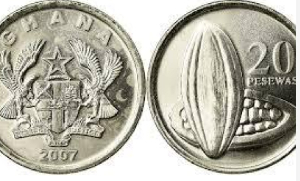Kwasi Amoako Atta, the roads minister has explained that there is nothing wrong with government patching concrete roads with asphaltic overlay.
Addressing a question in parliament recently, he submitted that from an engineering point of view, using asphalt to patch portions of the Tema motorway was a well-thought-out decision.
“Mr. Speaker, I don’t know where my colleague is coming from but I indicated in my answer that there are various ways of patching potholes. The motorway, obviously, is a concrete road and is rigid.
“And from an engineering point of view, there is absolutely nothing wrong in patching potholes with asphaltic concrete. From an engineering point of view, there is nothing wrong and I have indicated that we had to do cost-benefit analysis of what method to use,” he said.
He explained further that attempting to fix portions of the motorway with concrete will mean closing the major road artery that connects Accra to Tema and adjoining towns which is near impposible.
“When you want to use concrete to concrete, it will mean closing the road for a period and even if you want to use additives, you need to allow it to cure, you will still need to close the road because it will mean giving it a faster rate to cure.
“Nature of traffic on motorway is such that you cannot close the motorway for any length of period,” he added.
Government recently came under fire when it emerged that portions of the motorway in need of repairs were being patched with asphalt.
A number of engineers said it was the wrong approach to use asphalt on a concrete road instead of scrapping the entire portion and building a concrete replacement for purposes of sustainability.
Minister of Roads and Highways, Kwasi Amoako Atta, asserts that there’s absolutely nothing wrong with using asphalt to patch concrete, with regard to the Tema Motorway. pic.twitter.com/ZnjB3vdvke
— Simply The Best!!! (@Starr1035Fm) December 8, 2023
SARA
Click here to follow the GhanaWeb General News WhatsApp channel
Watch the latest episode of Everyday People below:
Ghana’s leading digital news platform, GhanaWeb, in conjunction with the Korle-Bu Teaching Hospital, is embarking on an aggressive campaign which is geared towards ensuring that parliament passes comprehensive legislation to guide organ harvesting, organ donation, and organ transplantation in the country.













